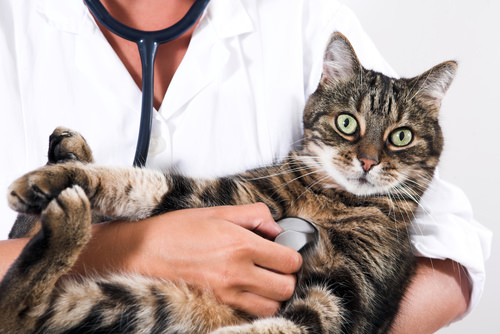
Dog lovers are understandably concerned about the outbreaks of canine influenza in parts of the country. You can read more about the disease in dogs by clicking here.
But recently, Sandra Newberry, clinical assistant professor and director of the Shelter Medicine program at the University of Wisconsin School of Veterinary Medicine, was able to confirm that the virus also infected a group of cats. The infected cats were found at an animal shelter in Northwest Indiana and they did test positive for H3N2 canine influenza virus.
Rumors of feline cases in other countries suggested that it could spread from dogs to cats and Dr. Newbury become suspicious. She says that she hopes that these cases will remain rare in the US.
The symptoms in the cat are similar to other upper respiratory infections common in cats and no cats have died from H3N2 as of yet.
It is always smart to keep any sick animal isolated from other animals and to follow typical safety precautions like hand-washing with this disease and any other infectious agent.
There is a vaccine available for dogs, but none for cats. Since the symptoms seem to be fairly mild so far, it seems unlikely that a vaccine will be developed anytime soon and hopefully we will not need one.
Even though no cases of fatalities from H3N2 flu have been reported in cats yet, other causes of upper respiratory signs in cats can be very serious, so if your cat is acting sick be sure to involve your veterinarian right away.

